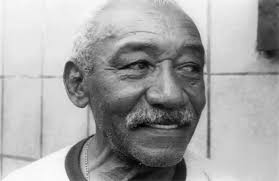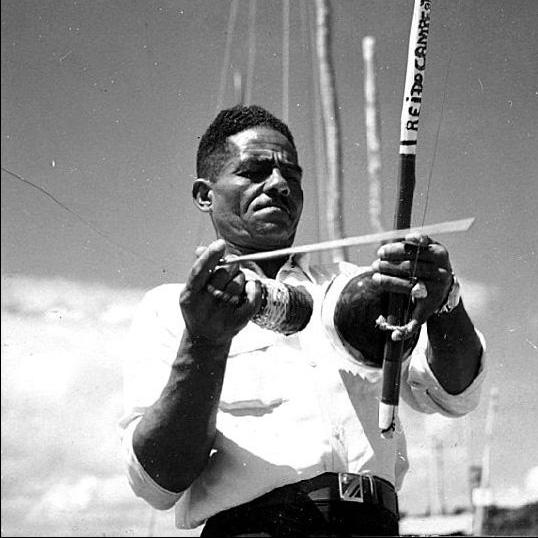Mestre Bigodinho
- Lived in: Santo Amaro, Bahia, Brazil
- Date of Birth: 01-Jan-1930
- Date of Death: 05-Apr-2011
- Learned from: Mestre Waldemar
- Capoeira Style: Angola
Biography:
Mestre Bigodinho — Reinaldo Santana
1933 • Recôncavo Baiano → 5 April 2011, Santo Amaro
Born in 1933 and raised in Acupe, Reinaldo Santana grew up inside the soundscape of the Recôncavo. He moved to Salvador in 1950 and met the berimbau master Auvelino, who opened the door to the instrument’s “secrets.” From then on, people often recognized Bigodinho before they saw him. They heard him. The timbre of his berimbau. The grain in his voice.
For more than 25 years he was a steady presence at Mestre Waldemar da Paixão’s Barracão, a crossroads for names like Traíra and Zacarias. It was the era when police might shut a roda with a threat to “break the pandeiro and the berimbau,” and Bigodinho learned to keep tradition standing under pressure. He led Grupo Resistência in Lapinha in the 1960s, joined Viva Bahia with Emília Biancardi, and was recognized as mestre in 1968. Alongside the game he carried a rare gift as singer and songwriter, shaping ladainhas and corridos with a free hand and old-school measure.
He stepped away in the 1970s, returning in the 1990s encouraged by Lua Rasta. Researchers like Frede Abreu point to Bigodinho’s deep memory of earlier mestres as vital to the revitalization of Capoeira Angola in the 70s and 80s. In 2007 the streets of Acupe became a living tribute in his honor, filmed by Gabriela Barreto. He recorded a CD with Mestre Boca Rica, and his other greatlove—samba de roda—traveledwith him wherever he went. Friends called him a born bohemian, generous with stories, strict with rhythm.
Bigodinho liked to explain capoeira in simple medicine: “Capoeira é uma farmácia”—movewith the people, and the aches go. He also left a pair of guiding lines that still ring true in the roda:
“Capoeira não se faz, se joga.”
“Faça pouco bem feito do que muito mal feito.”
He passed on 5 April 2011 at the Santa Casa de Misericórdia de Santo Amaro, the same hospital tied to the legend of Besouro and on the birthday of Mestre Pastinha. His legacy endures wherever a berimbau calls and a voice answers low and true.

